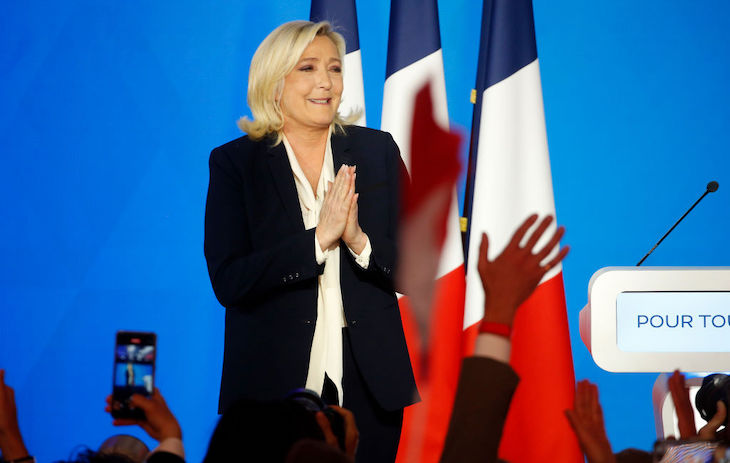Riding high in the polls with a 20-point lead, the Labour party is preparing for government. Across the Channel with a 10-15 point poll lead in the June European elections and predicted victory in the 2027 presidentials, the Rassemblement National is making tentative preparations for government too. Two years after forming his cabinet, Sir Keir Starmer’s cross-Channel interlocutor will be either Marine Le Pen or – should her ineligibility be declared in the forthcoming October trial for alleged misuse of European parliamentary assistants – the RN’s star president Jordan Bardella.
Already a subscriber? Log in
Subscribe for just $2 a week
Try a month of The Spectator Australia absolutely free and without commitment. Not only that but – if you choose to continue – you’ll pay just $2 a week for your first year.
- Unlimited access to spectator.com.au and app
- The weekly edition on the Spectator Australia app
- Spectator podcasts and newsletters
- Full access to spectator.co.uk




















Comments
Don't miss out
Join the conversation with other Spectator Australia readers. Subscribe to leave a comment.
SUBSCRIBEAlready a subscriber? Log in